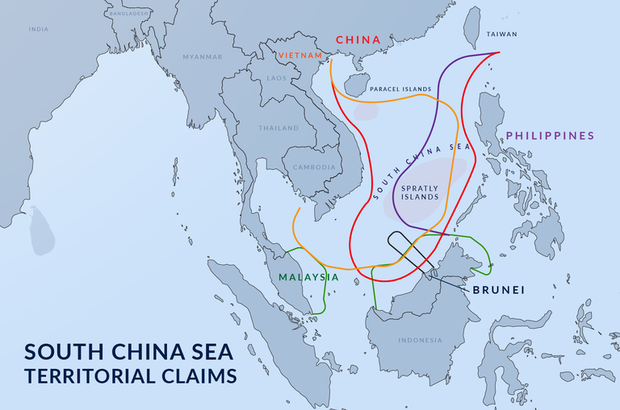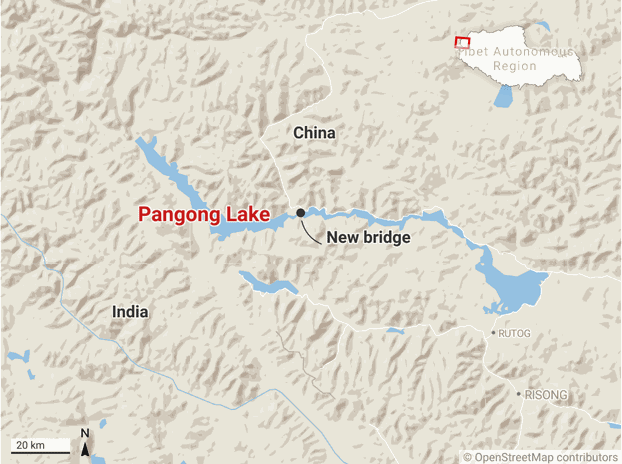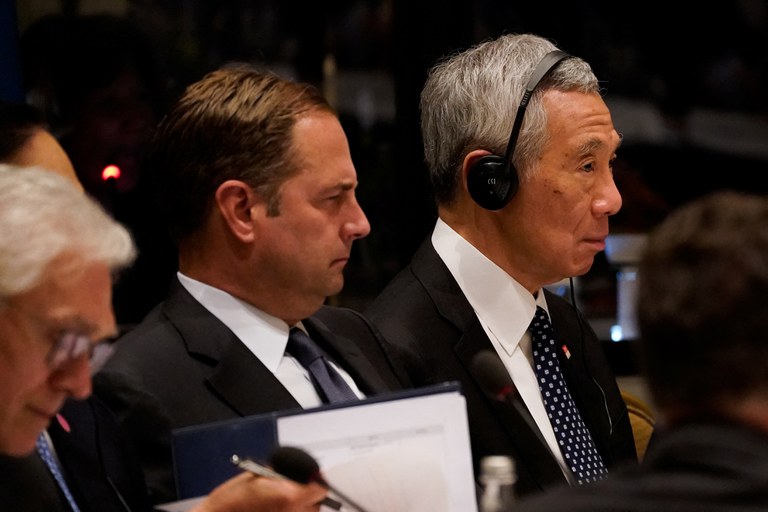
Junta troops murder 3 dozen civilians over 4 days in Myanmar’s Sagaing region
Junta forces brutally murdered nearly three dozen civilians — including members of the Buddhist clergy — over the course of four days in Myanmar’s embattled Sagaing region, sources said Monday. The military dismissed the allegations as “fabrications.” Residents told RFA’s Myanmar Service the killings took place from May 10-13 in Sagaing’s Ye Oo and Pale townships, beginning with an early morning raid on the former’s Mon Taing Pin village. A resident of Mon Taing Pin, who spoke on condition of anonymity citing fear of reprisal, said junta troops rained heavy artillery and mortar shells down on the village around dawn on May 10 in an attack that members of the anti-junta People’s Defense Force (PDF) paramilitary group later told RFA killed two of their fighters on guard in the area. “They entered our village after firing a variety of heavy weapons. Once in the village, they set up sentries all over and went to the monastery, where they arrested people hiding there and brought them out with hands tied behind their backs,” the resident said. “There was one group of 10 men, and then another group of eight, and another group of 12, and so on. All of them were later beaten to death and their bodies were placed under houses that the troops set on fire.” The villager called the attack “indescribably cruel” and “calculated.” On May 12, when the troops finally left the area and villagers were able to return, they discovered the charred remains of 28 people — 18 inside of homes destroyed by arson in Mon Taing Pin and another 10 similarly disposed of in nearby In Pin village. The victims were all men, between 20 and 60 years old, sources said, adding that in addition to Mon Taing Pin and In Pin, several homes burned in neighboring Si Son village, and around 10,000 residents from 10 area villages fled into the jungle during the attack. Photos provided to RFA by residents of the area appear to show human remains so thoroughly burned that little is left besides bone fragments and blackened internal organs. In other images, the bloated bodies of two young men lie askew next to a motorbike, their faces unrecognizable due to decomposition. One photo shows the lower half of a severed torso, next to a pair of amputated legs. Buddhist monks killed An aid worker, who also declined to be named, told RFA that his organization was compiling a list of victims on Monday. “The houses that were burned down are being cleared up — our main goal is to get the villages into a habitable state,” he said. “The houses were destroyed by fire, so we must make some makeshift repairs. We need funding to make food available. There villages are mostly destroyed, so we are in urgent need of donations.” Refugees from the attack are also in need of shelter as the rainy season approaches, he said. A member of the Ye Oo Township PDF told RFA that the threat of attack remains, as the military maintains a heavy presence in the area. “We don’t know at this time what they might do. The people in the region don’t dare to return to their villages, even though the situation has calmed down,” he said. “We’re trying to find ways to lift their spirits, to make them strong and help them. These are our priorities.” Separately, two Buddhist monks and two young novices were killed on May 13 when junta troops fired heavy artillery into the center of Sagaing’s Pale township, Po Thar, a fighter with the local Black Leopard PDF, told RFA. Po Thar said that on May 12, the Black Leopards launched an attack on the military proxy Union Solidarity and Development Party office in Pale, setting it on fire. “The next day, when the military column that was on a mission to Let Yet Ma village returned to Pale, they learned that a PDF group was in the town and started firing artillery shells,” he said. “But the PDF fighters were gone, and they were hitting ordinary people. One of their shells hit the Mya Thein Dan Monastery in the center of the town and killed the abbot, another monk and two young novices.” ‘Fabricated’ reports Junta deputy minister of information, Maj. Gen. Zaw Min Tun, called the reports of civilian deaths “fabricated.” “These are just rumors. When they have a favorable outcome, [the PDF] says they were responsible. And if one of them is killed, they claim it was a [civilian],” he said, calling the reports part of the PDF’s “routine tricks.” He said the military attacked and captured a PDF camp near Ye Oo’s Sigone village on May 11, killing more than 10 paramilitaries and confiscating a cache of makeshift mortars, weapons and other related materials. Last week’s attacks follow a May 1 announcement by the military that Ye Oo had been upgraded from a township to a district level. PDF fighters in the area told RFA that a military tactical commander is now overseeing the area and that several armored vehicles and troop reinforcements have since been deployed there. Myint Htwe, a former lawmaker with the deposed National League for Democracy party in Ye Oo, said that since the beginning of May, the military has been clearing out an increasing number of villages in the township. Sagaing region has been the center of some of the strongest armed resistance to junta rule since the military seized power from the country’s democratically elected government in a Feb. 1, 2021, coup. Fighting between the military and the PDF in the area has intensified in recent months, displacing thousands of civilians, according to sources. Translated by Khin Maung Nyane. Written in English by Joshua Lipes.






